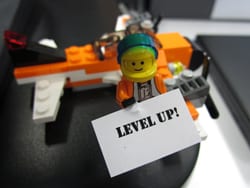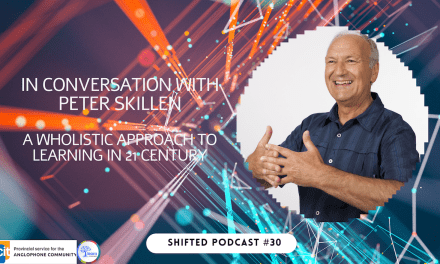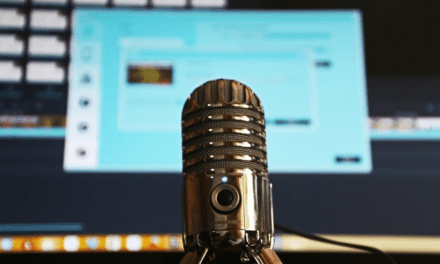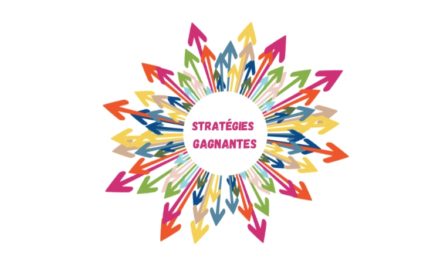I’ve always been interested in the way professionals learn (or fail to learn) in practice. As far back as 1998, when I worked with the South Shore School Board (yes, before the linguistic school boards!) on technology integration projects, we joked about One Day Wonders – you know, the one day workshops that are the usual offerring of teacher PD. You might get Portfolio one day, IWBs another day, Understanding by Design yet another day. These one-shot workshops are easy to organize and are a good way for a teacher to get a general sense of how something might work in his or her practice. But if you’re looking for true, lasting changes in professional practice, you need to simmer up something in the best laboratory of all – your classroom.
The Mentoring Project
I’m privileged to be working with a group of teachers who is doing exactly this in the Montreal area. When the funding for PD ran out at Concordia University’s Centre for the Study of Learning and Performance (CSLP), researchers Larysa Lysenko and Vanitha Pillay suggested to veteran research participants that they could apply for their own grant to pursue professional development in the area of self-regulation and increasing literacy. Teachers Mary-Ellen Lynch (RSB), Tanya Bell Beccat (EMSB) and Irene Tsimiklis (SWLSB) submitted a request for a Professional Development and Innovation Grant (PDIG) called “Yes We Can: Facilitating the Use of Evidence-based Tools to Increase Cycle-One Student Literacy” with a view towards sharing the experience and expertise they have gained over time and thus building capacity in other teachers through a mentorship model.
This is the key part of the grant – the mentorship model. Teachers learn best through the experiences of other teachers AND their own experimentation. Mary-Ellen, Tanya and Irene have each found other teachers in their school or board with whom they will be working on integrating the Learning Toolkit (LTK) into their literacy practice. These teachers will also become familiar with, and hopefully use, the classroom practices associated with self-regulated learning that underpin the software suite. The grant funds will be used to release teachers to meet as a large multi-board group, as smaller board- or school-based groups and also for visiting each other’s classrooms. This means that participating teachers will not only have the opportunity to visit the classrooms of their mentors to see how things are organized, but will also benefit from classroom visits themselves at key moments when an extra pair of hands and an extra voice are needed. This model of professional development has a lot of sticking power because of the creation of shared knowledge and interdependence that are built into it.
A note about PD
The best professional development initiatives are those that rely on iterative cycles of teacher practice and reflection that are in tune with what matters to teachers, what sound research tells us and also what matters to society as a whole. We are fortunate in Quebec to have good structures in place, such as the PDIG grants, that for the most part foster such initiatives. The current professional development discourse coming from south of the border is often quite bleak, and even here flavour-of-the-month crazes take root. This is why this project makes me so happy!
First Meeting
The whole team held its inaugural meeting on October 30th at Concordia University in Montreal. At least eight teachers, along with pre-service teachers doing their practica, the three mentors and assorted consultants gathered for the first meeting of what promised to be an exciting project. Although teachers knew their mentor and possibly the other teachers from their school or board, it was the first time that they met as a larger group to chart the path ahead. It was an exciting day, with all teachers highly motivated to get started and to learn from their mentors and from each other’s experience. Just as Mary-Ellen, Tanya and Irene learned from each other over the years through discussions, meetings and at least one classroom visit, these teachers will also be sharing their new emerging expertise and their passion for literacy with other teachers. They will be implementing changes to their practice and seeing how these changes work in their classrooms and with their students. Adjustments will be made, new ideas will form and new understanding will emerge – a perfect storm of professional learning.
Each teacher received a laptop computer to take away to their school, courtesy of the CSLP. They can use these computers to gain expertise with the LTK software suite, to track their students’ work and to provide feedback. For group knowledge-management technology, the group decided to use SkyDrive (a Windows product) as a repository for files and meeting notes – so far, Tanya and I have both uploaded files to the shared space, and some of the teachers have joined it.
Your Turn
So maybe you are ready to jump in with the LTK teachers, but don’t have a group of people nearby for meaningful collegial conversations and shared plans of action. Letting consultants from your board know that you are interested in working on a long-term project is one way of making sure you are asked to participate when grants are being written. There are also many ways to reach out to a larger community of professionals nowadays. Some teachers choose to have their own blog, where they write and reflect about their practice – you can do this too. The best ones have an active comments section (for more on how to comment on blog posts, click here). You can also participate in virtual conferences such as the K-12 Online Conference, where you can connect with other educators from around the world. What other ways do you engage in meaningful professional learning? I’d love to hear from you about this or anything else that you’d like to share.
Sylwia Bielec
Related Posts
Telling it Like it Is: Action Research & Asking the Right Question
Continuing the Conversation: The Art of Commenting on Blogs
Links in this post
Teachers Should Lead Professional Development, Not Researchers
http://thenotebook.org/blog/125274/teachers-should-lead-professional-development-not-researchers
Learning with Blogs and Wikis
http://www.ascd.org/publications/educational-leadership/feb09/vol66/num05/Learning-with-Blogs-and-Wikis.aspx
Best Teacher Blogs according to Edudemic
http://edudemic.com/2011/12/teacher-blogs/
K-12 Online Conference
http://k12onlineconference.org/






Insightful and dead-on. Kudos to all the participants, in what is sure to be a highly successful project. Incredible learning opportunity for all involved. I could feel the energy in the room!
Learning theory doesn’t apply only to the students in our classrooms. Professional development is effective when the participant is engaged understands the relevance of the exercise, when the learning is authentic and when the participant can share and exchange with others in an ongoing process of discovery, collaboration. When teachers model a learning process for themselves they will carry that style of learning into their classrooms.